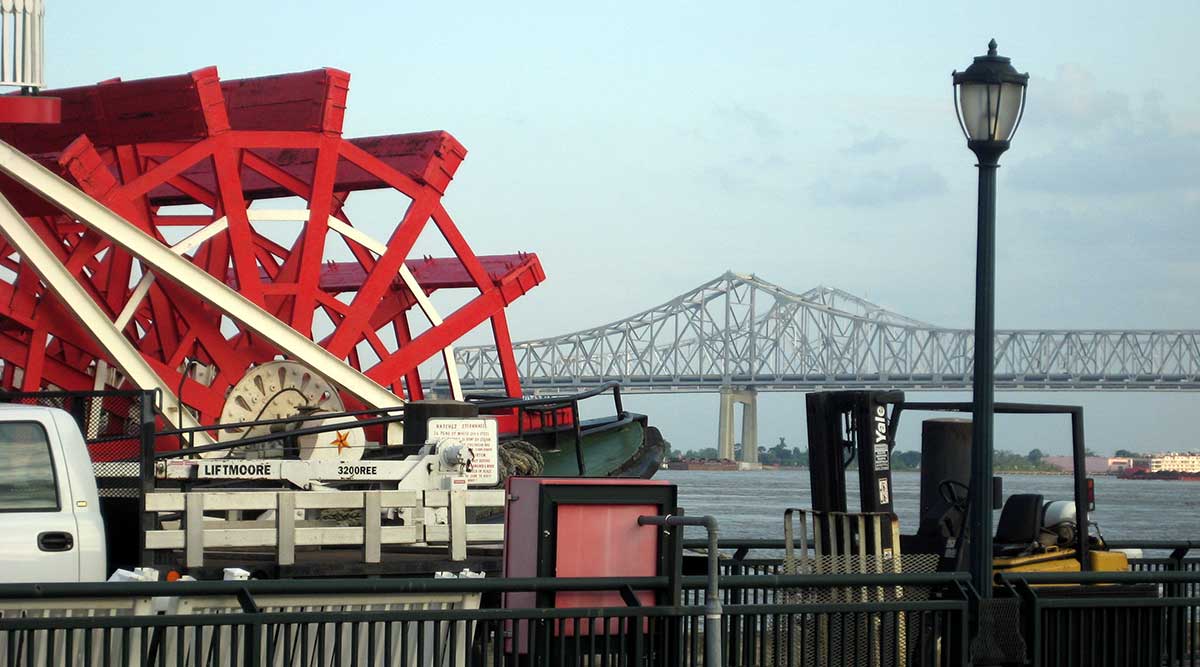Louisiana Gas Tax Hike Comes to Life

The drive to raise Louisiana’s gasoline tax has suddenly flickered to life, but backers now face the daunting task of rounding up a two-thirds majority in the state House amid anti-tax cries inside and outside the Legislature.
At stake is a proposed 17-cent hike in the gas tax, which would raise $510 million per year for roads, bridges and others forms of transportation.
A measure to do just that, House Bill 632, sponsored by Baton Rouge Republican Rep. Steve Carter, narrowly cleared the House Ways and Means Committee last week, a 50-50 proposition going in that backers managed to push through.
But even supporters of the effort say that, with less than three weeks left in the session, only 50 or so House members are behind the bill, well below the 70 votes needed to move the issue to the Senate.
The legislation is set for debate May 25, but it could be delayed, perhaps for good, if backers are short of votes.
House Ways and Means Committee Vice Chairman Jim Morris once considered sponsoring a bill like Carter's possibly with the blessing of Gov. John Bel Edwards. Yet Morris voted against the 17-cent boost in committee. He said five tax renewals recently failed in his home area and his constituents are telling him, in no uncertain terms, not to endorse any higher charges on gasoline.
Meanwhile, Morris said, lawmakers are grappling with a wide range of other possible tax hikes to tackle Louisiana’s latest budget crisis.
“It is just a perfect storm not to do the gas tax right now,” he said in an interview. “Today is just not the day."
However, backers of HB632 were energized by the committee’s 9-7 vote for the legislation, with five Democrats and four Republicans voting for it.
Lobbyists are pleading with individual House members in State Capitol hallways, while officials of business and industry groups statewide behind the push for increased transportation infrastructure funding are reaching out to legislators in their areas to gauge support.
“Now that it got out of committee, a lot more people are paying attention to it,” Carter said.
Shawn Wilson, secretary of the state Department of Transportation and Development and one of the leaders of the effort to raise the tax, said it makes no sense to fret over any current head counts.
"The question isn’t necessarily about the 50 you have,” Wilson said in an interview. “It is more about the definite noes you have and those that are in the middle.”
No one doubts that the state faces huge transportation problems, especially in Baton Rouge, New Orleans and Lafayette.
The $13.1 billion backlog of roads and bridge needs, and another list of new “mega” projects like a new bridge across the Mississippi River in Baton Rouge, are part of almost every debate on the gas tax, which has not been changed in 28 years.
However, the Legislature has been unable to strike a compromise on a tax and spending plan to offset the latest state budget crisis, and it has trounced Edwards’ proposals to do so along the way.
Both backers and opponents of the gas tax hike have accelerated their campaigns since the committee approved Carter’s bill.
A coalition of nearly three dozen influential groups, including the Baton Rouge Area Chamber, are relying on TV ads (by BRAC), radio ads and social media to get their pro-tax hike message out.
“I would say that the impact of the positive vote in committee has already given the effort a boost and generated renewed attention to the issue of transportation,” Michael DiResto, senior vice president for economic competitiveness for BRAC, said in an e-mail.
On the other side, Americans for Prosperity-Louisiana planned to have 40 to 50 of its members going door to door urging residents to call their legislators and support rejection of the tax boost. “The citizens of this state have been clear about their opposition to this bill,” John Kay, the group's state director, said in an e-mail.
The group also charged that Carter’s bill was amended in committee to create a slush fund for lawmakers if the measure becomes law. "Legislators gave themselves the authority to unilaterally decide where gas tax dollars are spent in their districts," the group said in a statement.
"While this provision contains some safeguards, there is still significant risk for decisions to be made to benefit political cronies rather than the district, parish or state as a whole," according to the statement.
The amendment by Rep. Clay Schexnayder would require that some of the dollars for noninterstate improvements be distributed among each legislative district at a rate of $500 per lane mile. Lawmakers, with input from local officials, would then decide how that money is used.
In an interview, Schexnayder said the amendment would allow lawmakers “to do small things that make a big difference in some of these districts.”
While Republicans have gotten lots of credit for killing tax bills designed to address state budget problems, four Republican members of the Ways and Means Committee endorsed Carter's bill. But even they have concerns.
Rep. Julie Stokes said the state clearly has road and bridge troubles. But she said a 17-cent hike is too much and she would prefer something lower, possibly 10 cents, or $300 million per year in new dollars.
Rep. Barry Ivey who split with some of his traditional allies to vote yes on the bill in committee, said he has no idea whether it will win House approval. He said he is most concerned about accountability and transparency around the issue.
Ivey said that in a state beset by education, health and other problems, a major upgrade in infrastructure would send a message to the world that Louisiana "is growing up a little bit."
Distributed by Tribune Content Agency, LLC




